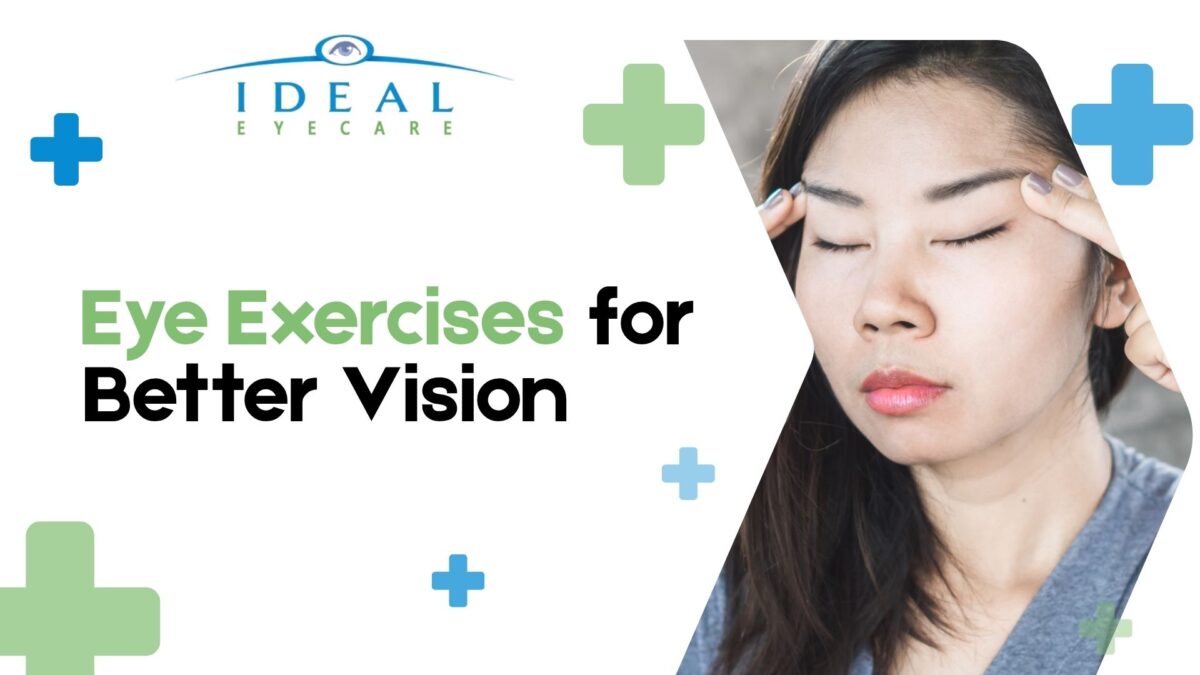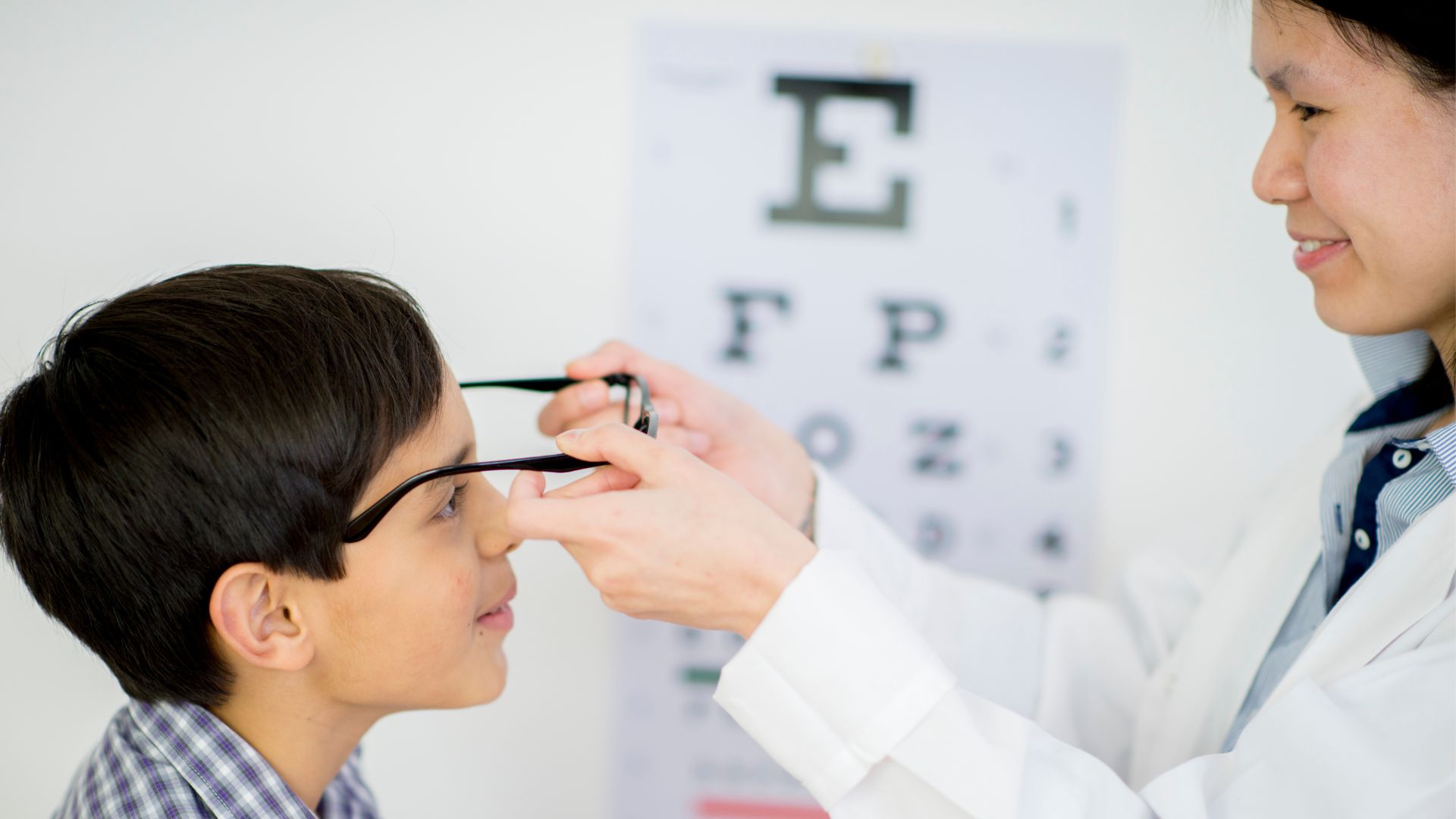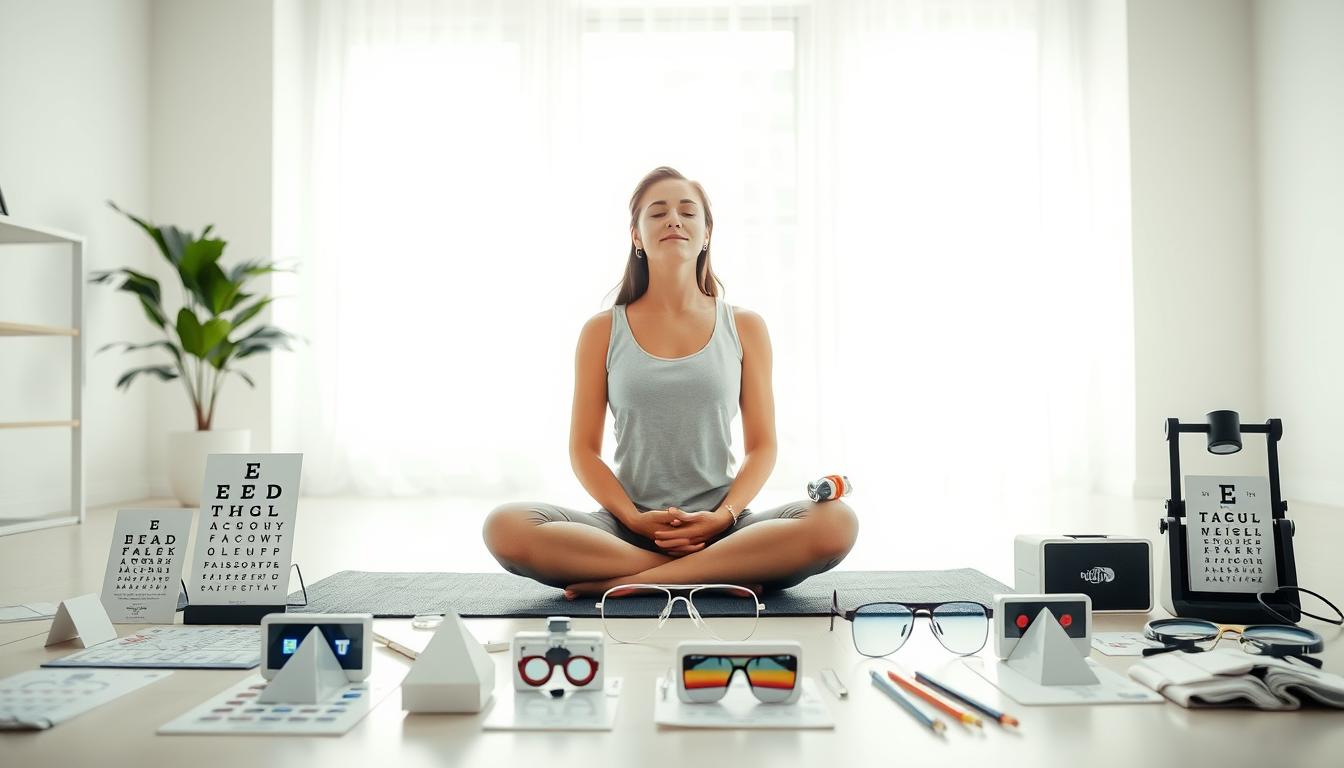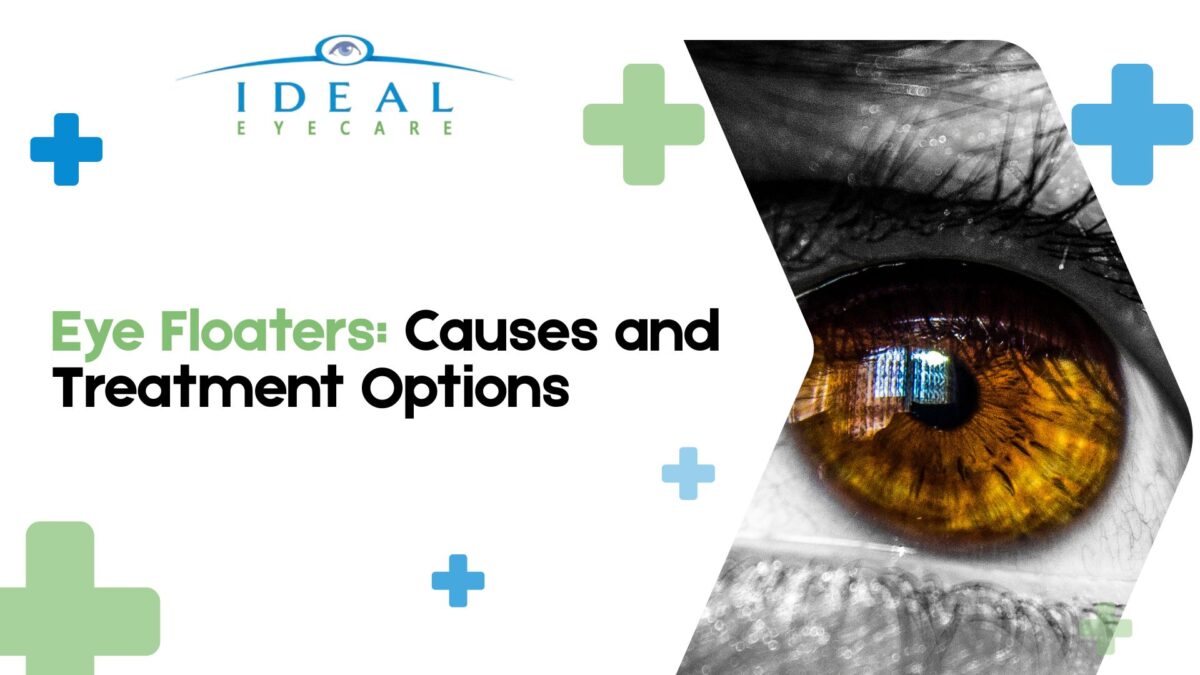
Did you know 75% of people over 50 will notice tiny shadows drifting across their vision? These specks or cobweb-like shapes aren’t imaginary—they’re a natural part of aging for many Canadians. At Ideal Eyecare, Mississauga’s trusted optical experts, we help patients understand these visual quirks and when they might signal deeper concerns.
Most visual disturbances occur when the gel-like substance in your eye (vitreous humor) gradually shrinks, casting shadows on the retina. While usually harmless, sudden changes could indicate retinal issues requiring immediate care. Our team uses advanced diagnostic tools to differentiate routine changes from urgent conditions.
You don’t need to navigate these changes alone. Whether you’re seeing occasional specks or experiencing flashes of light, understanding the root causes and available solutions brings peace of mind. Let’s explore what your eyes might be telling you.
Key Takeaways
- Visual floaters affect three-quarters of adults over 50 due to natural vitreous changes
- Most cases are harmless but sudden increases warrant professional evaluation
- Routine eye exams help detect age-related changes early
- Severe symptoms like light flashes may indicate retinal complications
- Treatment options range from monitoring to specialized procedures in rare cases
- Local clinics like Ideal Eyecare offer tailored diagnostic services in Mississauga
What Eye Floaters Mean for Your Vision Health
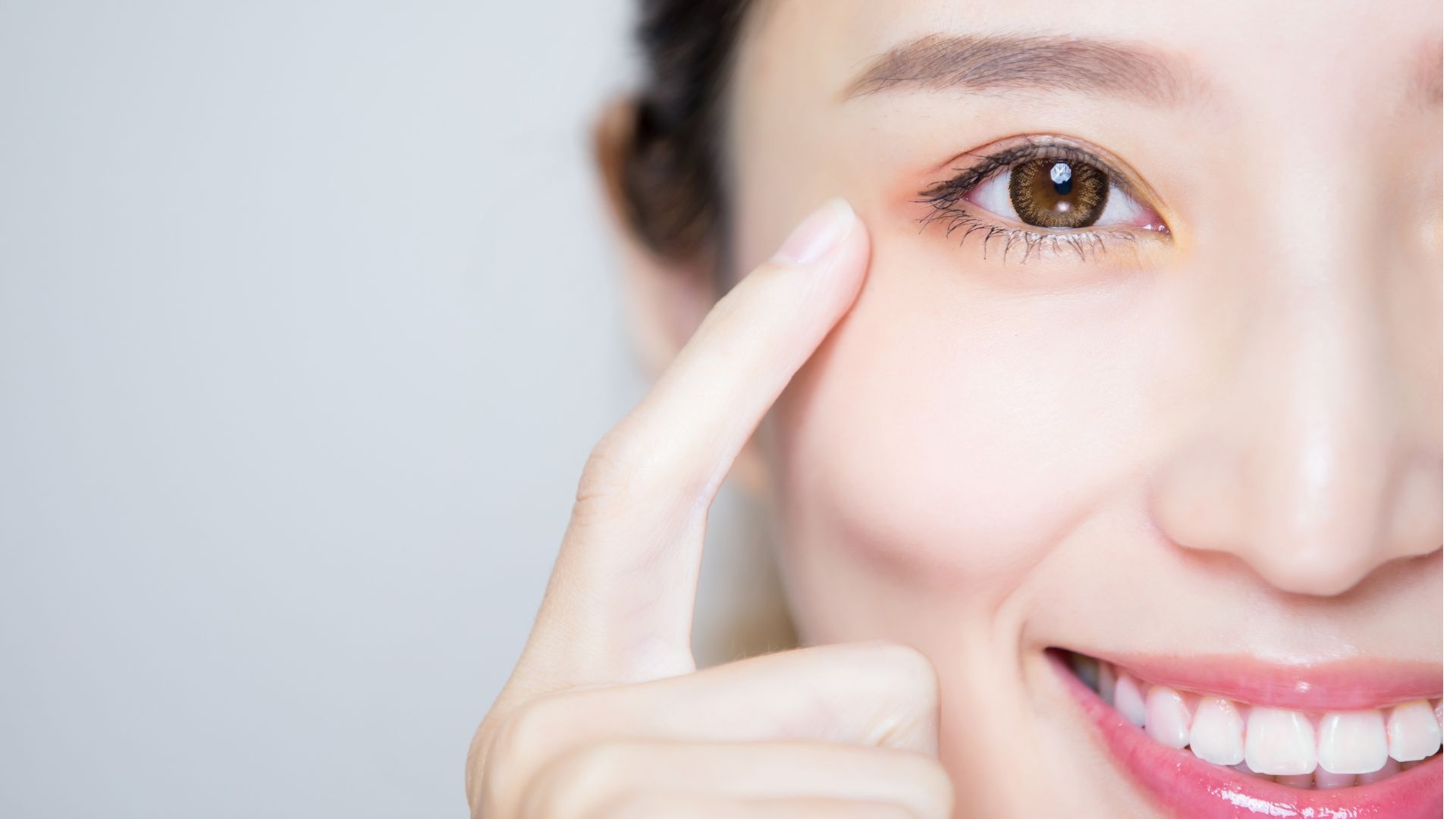
Those tiny specks in your vision might be more than just a nuisance. They could be a sign of changes in your eye health. Most floaters come from aging, but knowing why they happen helps you know when to see a doctor.
The Science Behind Those Spots and Strands
Your eye’s vitreous humor changes as you age. It’s like a jelly turning into liquid, forming clumps that shadow your retina, says Mayo Clinic.
Vitreous Gel Composition Changes
Collagen fibers in the vitreous thicken with age. They form strands that lose transparency, showing up as dots or cobwebs in your vision. This usually starts in your 50s but can happen earlier.
How Shadows Form on the Retina
Light passing through the eye creates shadows from these strands. Your brain sees these shadows as floaters moving in your vision, more noticeable against bright backgrounds.
Typical vs Concerning Floater Patterns
Most people see occasional floaters that come and go. But sudden changes need quick attention. Let’s look at what’s normal and what’s not.
Normal Aging-Related Floaters
Common age-related floaters:
- Appear gradually over months or years
- Maintain consistent shapes and sizes
- Drift slightly when you move your eyes
Sudden Shower of Black Dots
A sudden burst of dark specks could mean a retinal tear. Other urgent signs include:
- Flashes of light in peripheral vision
- A dark curtain obscuring part of your sight
- Rapid increase in floaters within hours
While some try natural remedies like pineapple or supplements, Ideal Eyecare in Mississauga prefers proven methods. Our team helps patients adjust to floaters with visual exercises and environmental changes, not untested treatments.
Key Causes of Eye Floaters and Canadian Risk Factors
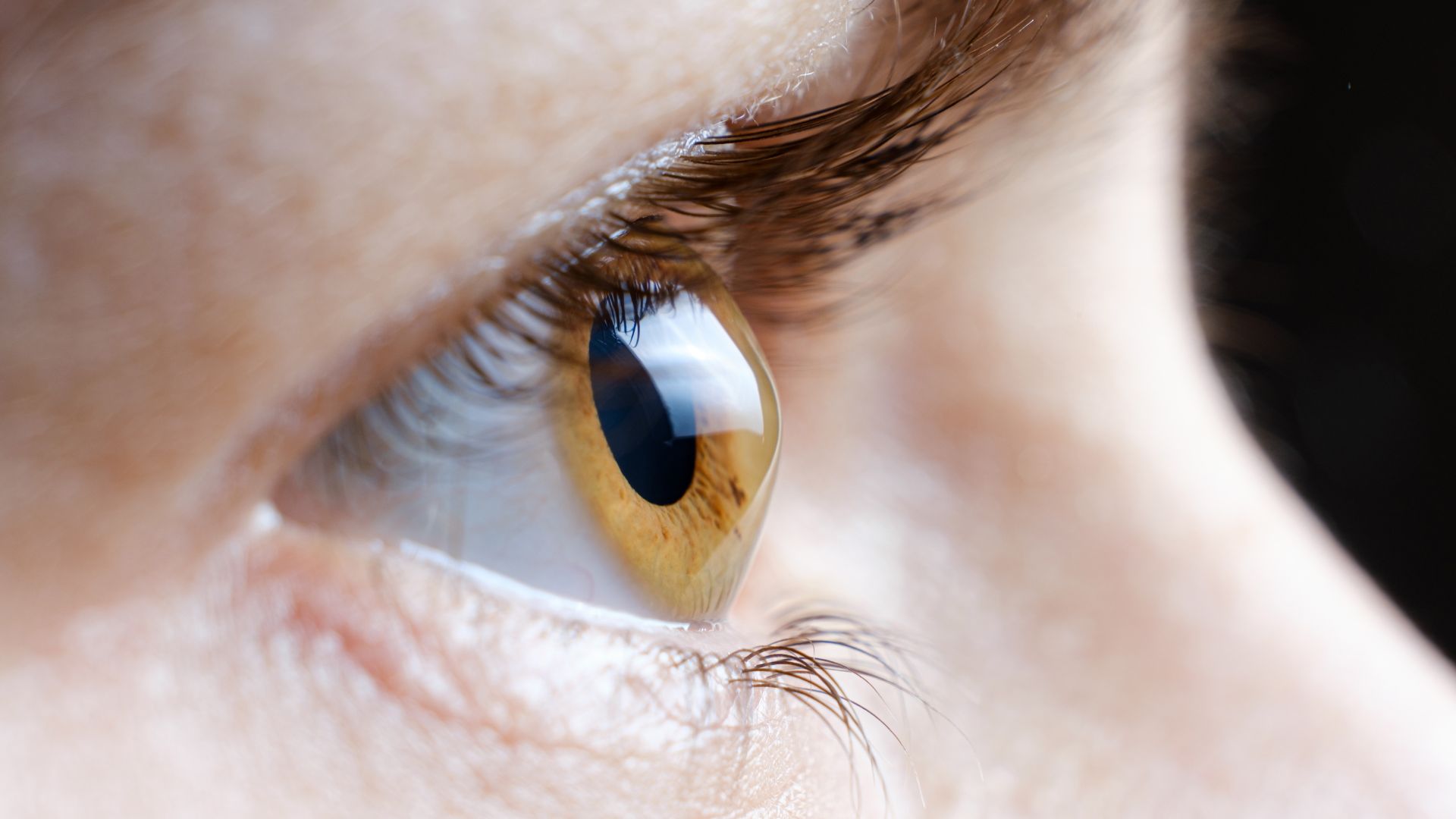
Eye floaters come from changes in our bodies and the environment. In Canada, some factors are more common and need attention to keep our eyes healthy.
Natural Aging Process Effects
After 50, the gel in our eyes starts to shrink. This is called vitreous syneresis. It makes collagen fibres clump, causing floaters.
Vitreous shrinkage after age 50
The Canadian Association of Optometrists says 67% of Canadians over 50 see changes in their eyes. Regular eye exams can tell if these changes are normal or not.
Statistics from Canadian Association of Optometrists
CAO data shows 1 in 3 Ontarians over 55 need to watch their eyes. Annual exams help manage floaters and other vision issues early on.
Medical Conditions Requiring Monitoring
Some health issues make eye changes worse. Diabetes is a big one, affecting 28.5% of Ontario diabetics, reports show.
Diabetes-related vitreous changes
Diabetes damages blood vessels in the eyes, leading to bleeding and scarring. People with diabetes in Mississauga should get their eyes checked every three months.
Ontario-specific diabetic retinopathy rates
Public Health Ontario says eye problems from diabetes are 18% more common in cities. In Southern Ontario, where diabetes is more common, regular eye checks are key.
Environmental Triggers in Southern Ontario
The weather in our area affects how we see floaters. Changes in light and UV levels pose challenges for Ontarians.
Impact of seasonal light changes
Floaters are more noticeable in winter’s low sun and summer’s bright light. Many notice them more in April’s rain and August’s haze.
UV exposure and floater perception
Southern Ontario gets 35% more UV in peak months. This speeds up eye changes and makes floaters seem more obvious.
Recognizing Emergency Eye Floater Situations

Knowing when floaters are a sign of an emergency is key to saving your vision. While many people have harmless floaters, sudden changes or symptoms may mean retinal damage. Quick action is vital, as it can greatly improve outcomes, like in cases of retinal detachment.
Red Flags Demanding Same-Day Care
Seek immediate help if you notice these critical warning signs:
Combination with peripheral vision loss
A sudden shadow or curtain effect in your side vision, along with new floaters, may indicate retinal detachment. This is a serious emergency where the retina detaches from its blood supply.
Persistent flashing lights
Flickering lights that last more than 20 minutes, mainly in dim places, often signal retinal tears. The Mayo Clinic says these symptoms need urgent evaluation to avoid permanent vision loss.
Mississauga Emergency Care Protocols
Local clinics and hospitals have quick processes for eye emergencies:
Ideal Eyecare’s urgent assessment process
They offer same-day appointments with retinal imaging and visual field tests. If detachment risks are found, patients get fast referrals to specialists, often within 2 hours.
Partner hospitals with retinal specialists
Trillium Health Partners’ ophthalmology department works with Ideal Eyecare for emergency surgeries. This partnership ensures Mississauga residents get timely care, following Canada’s top standards for retinal care.
Effective Treatment Options for Persistent Floaters
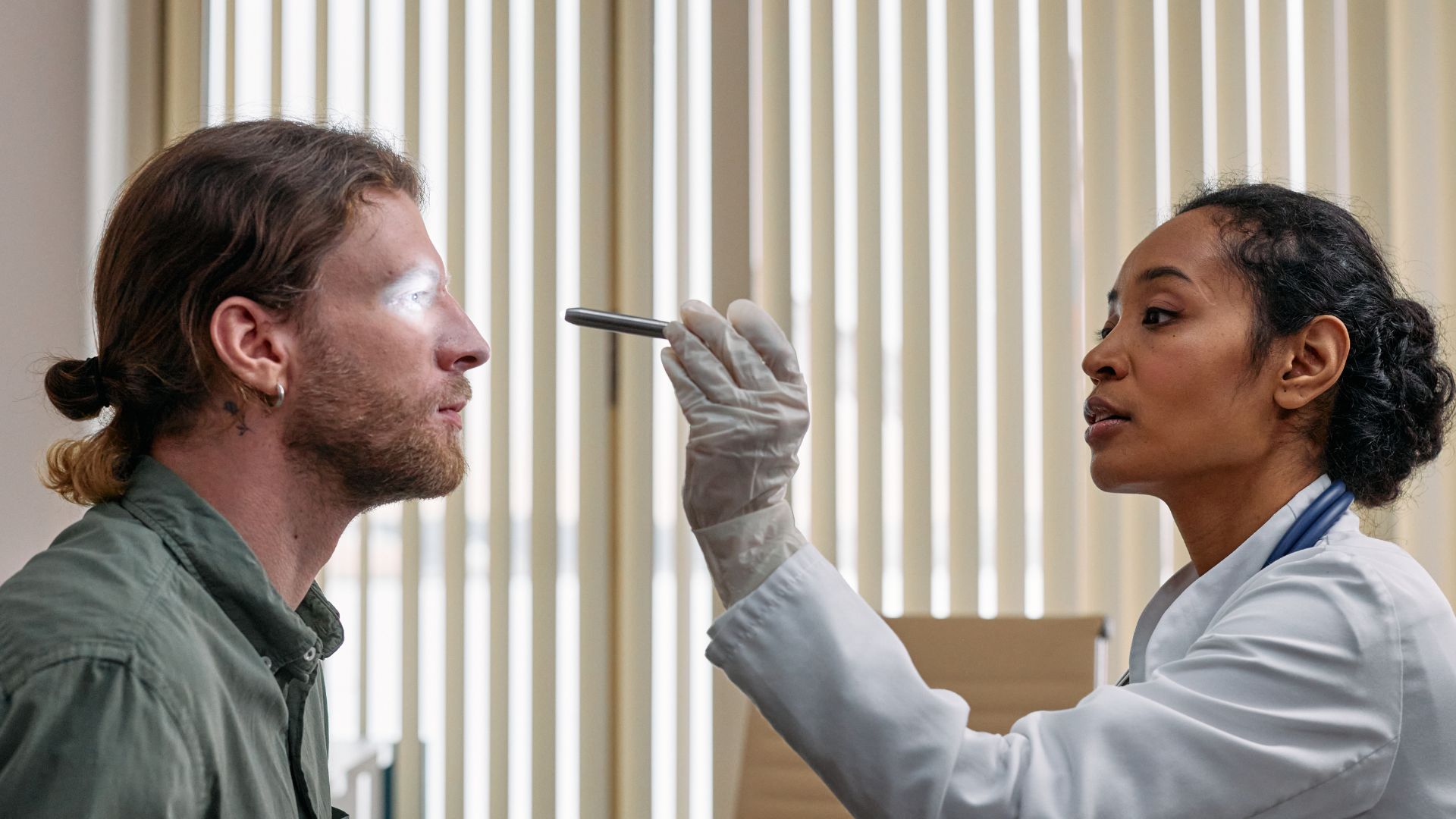
Floaters can really get in the way of daily life. There are many ways to deal with them, from simple tricks to more serious surgeries. Let’s look at what Canadian eye care providers offer.
Non-Surgical Management Strategies
Many people find relief without surgery. These methods help make life easier and clearer.
Adaptation techniques we recommend
Try these to make floaters less bothersome:
- Practice controlled eye movements to shift floaters from central vision
- Use adjustable lighting to minimize shadows cast by floaters
- Stay hydrated to maintain vitreous consistency
Laser treatment candidacy factors
Laser vitreolysis is best for those with:
- Well-defined floaters away from retina
- Stable vitreous structure
- No history of retinal tears
But, Mayo Clinic says it’s not for everyone. It’s not good for diffuse floaters or those near sensitive eye areas.
Surgical Solutions Available at Ideal Eyecare
For serious cases, surgery might be needed. Our Mississauga clinic uses the latest micro-incision techniques.
Micro-incision vitrectomy details
This surgery involves:
- Removing vitreous gel through tiny incisions
- Replacing it with saline solution
- Using local anesthesia for comfort
Studies show risks include rare cataract formation and retinal detachment in 1-2% of cases.
Post-operative recovery expectations
After surgery, patients usually:
- Use medicated eye drops for 2-3 weeks
- Avoid heavy lifting for 14 days
- Return to desk work within 48 hours
Ontario Health Coverage Guidelines
Knowing what insurance covers helps plan your treatment.
OHIP-covered vs private procedures
OHIP pays for vitrectomies when needed for medical reasons. But, cosmetic removal is not covered.
Insurance pre-authorization support
Our team helps with:
- Documentation for OHIP approvals
- Private insurance claim forms
- Treatment cost explanations
We work directly with insurers to make things easier for you.
Your Next Steps for Floater Management in Mississauga

In Mississauga, eye floaters need a professional check-up. Early tests help tell if they’re harmless or serious. At Ideal Eyecare, we focus on clear vision and understanding treatment options.
Comprehensive Assessments at Ideal Eyecare
Our Diagnostic Imaging Technology
We use optical coherence tomography (OCT) for detailed retinal scans. This tech:
- Sees tiny retinal changes
- Tracks floater numbers over time
- Finds early signs of problems
With dilated eyes, our tech gives a full view of your eyes. It’s quick, painless, and takes 15-20 minutes.
Personalized Monitoring Plans
Your test results decide how often you need to come back. Most people need:
- First test with OCT
- Visual field test in 3 months
- Full check-up every year
Those at higher risk get special plans and quick appointments. We track changes in your health online.
To book a floater check in Mississauga, call Ideal Eyecare at (905) 507-9752 or visit our Hurontario Street clinic. We offer fast appointments for urgent cases.
Conclusion
Eye floaters are a common sight that we should be aware of. Most of the time, they are just a sign of aging. But, if you see more floaters or flashes of light, you should see a doctor right away.
Mississauga folks should know how things like pollen and UV rays can affect their eyes. Ideal Eyecare uses special tools to spot tiny changes in the eyes. They offer treatments that are backed by science, and they work with you to find the best option.
Getting your eyes checked regularly is key. It helps track any changes in your floaters. Doctors in Southern Ontario suggest eye exams every year for people over 50. They also recommend more frequent checks for those with diabetes or high myopia.
It’s important to know when to seek emergency care for eye problems. Mississauga has quick response times for eye emergencies. Keeping a record of your symptoms can help doctors figure out if you need urgent care.
Looking after your eyes is important for your overall health and happiness. Visit Ideal Eyecare to talk about how to manage your floaters. Early action is the best way to protect your vision in Canada’s changing weather.

